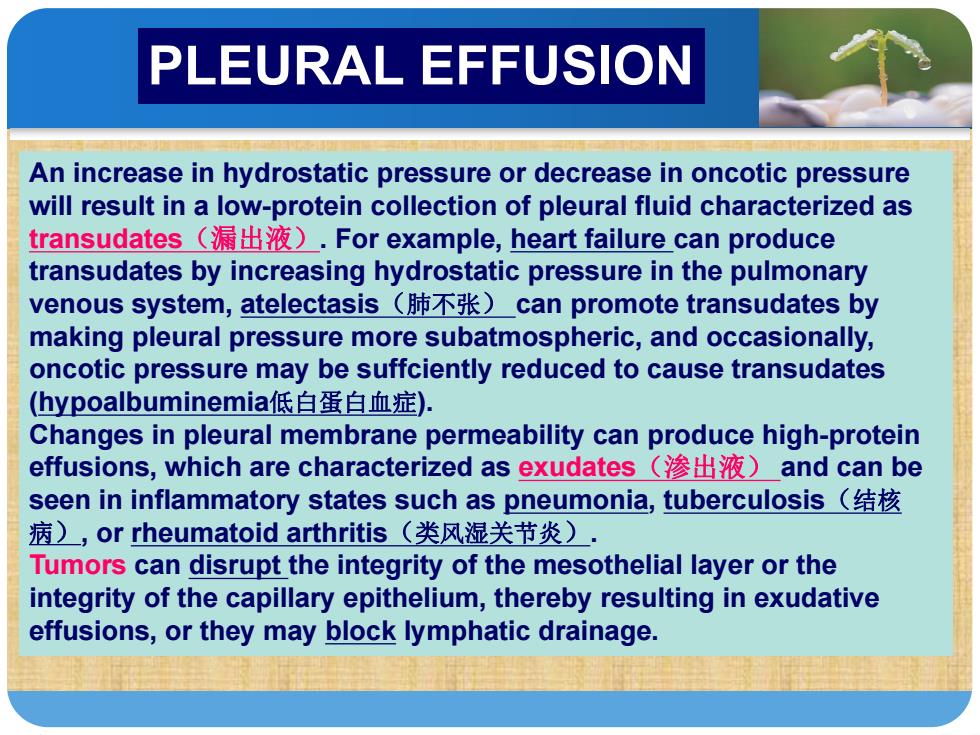正在加载图片...

PLEURAL EFFUSION An increase in hydrostatic pressure or decrease in oncotic pressure will result in a low-protein collection of pleural fluid characterized as transudates(漏出液).For example,heart failure can produce transudates by increasing hydrostatic pressure in the pulmonary venous system,atelectasis(肺不张)_can promote transudates by making pleural pressure more subatmospheric,and occasionally, oncotic pressure may be suffciently reduced to cause transudates (hypoalbuminemia低白蛋白血症). Changes in pleural membrane permeability can produce high-protein effusions,which are characterized as exudates(渗出液)and can be seen in inflammatory states such as pneumonia,tuberculosis 痼),or rheumatoid arthritis(类风湿关节炎) Tumors can disrupt the integrity of the mesothelial layer or the integrity of the capillary epithelium,thereby resulting in exudative effusions,or they may block lymphatic drainage.第 一 部 分 An increase in hydrostatic pressure or decrease in oncotic pressure will result in a low-protein collection of pleural fluid characterized as transudates(漏出液). For example, heart failure can produce transudates by increasing hydrostatic pressure in the pulmonary venous system, atelectasis(肺不张) can promote transudates by making pleural pressure more subatmospheric, and occasionally, oncotic pressure may be suffciently reduced to cause transudates (hypoalbuminemia低白蛋白血症). Changes in pleural membrane permeability can produce high-protein effusions, which are characterized as exudates(渗出液) and can be seen in inflammatory states such as pneumonia, tuberculosis(结核 病), or rheumatoid arthritis(类风湿关节炎). Tumors can disrupt the integrity of the mesothelial layer or the integrity of the capillary epithelium, thereby resulting in exudative effusions, or they may block lymphatic drainage. PLEURAL EFFUSION